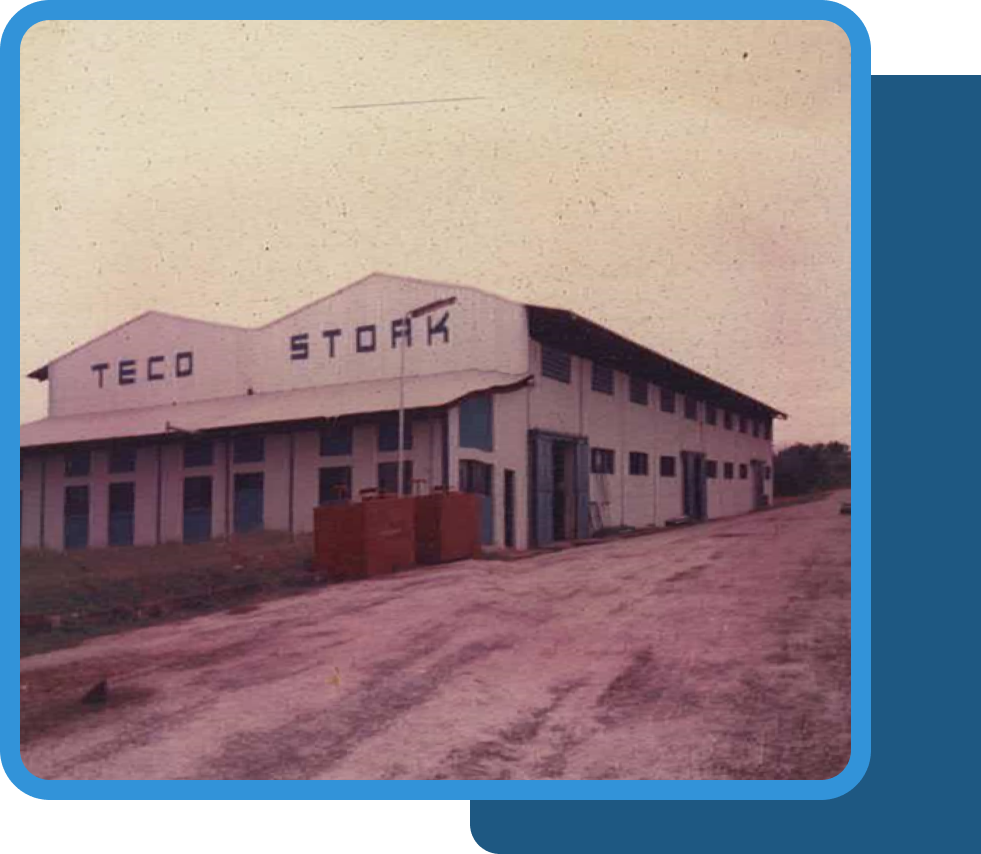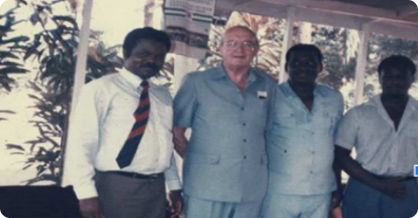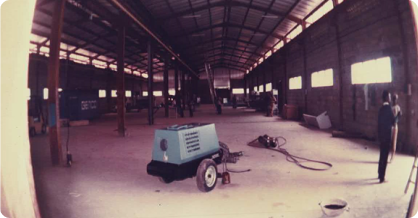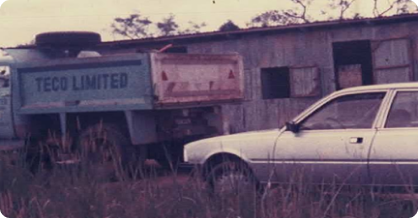The Journey of a Thousand Miles
Our History
THE BIRTH OF AN IDEA
Yemila as she was fondly called was our founder’s grandmother. She was a local processor of palm oil. Engr. C.A. Aladewolu popularly referred to as CE within the TECO group grew up watching his grandmother break her back in the very laborious process of local palm oil processing. From a young age, he knew there had to be a less labour intensive and more hygienic way to achieve the same result. After graduating from University in the early 70s having studied mechanical engineering, he went about researching better palm oil processing methods. A few years later in 1980, he came across Stork Amsterdam B.V., a dutch company that engineered, constructed and installed palm oil processing plants all over the world. A joint venture between the two parties was signed and TECO STORK Nig. Ltd was born
THE JOINT VENTURE
The two parties went all over Nigeria educating plantation owners on the health and financial benefits of mechanized palm oil milling. In 1991, a fully equipped factory for local fabrication of Palm Oil Mills was commissioned in Ondo State while the head office remained in Lagos. They sold many small community mills to the Federal government and mid sized mills to private processors. One of such mills is a 20ton per hour mill commissioned in 1983 and which is still running today, many years later.
BUILDING ALONE

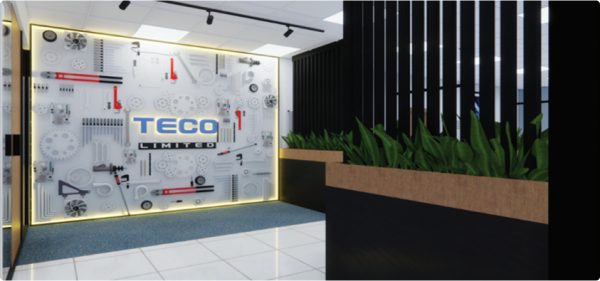
The journey ahead
Where we are now
A BROADER SPECTRUM
At TECO, our name (Total Engineering COncept) embodies our mission. We deliver comprehensive engineering solutions that encompass Electrical, Mechanical, and Structural Engineering disciplines, catering to clients across Africa.
Driven by innovation and a passion for excellence, we provide cutting-edge services that empower our clients’ businesses and create machinery that stands the test of time.
Guided by our motto, ‘Africans building machines for Africa,’ we’re committed to providing engineering services that foster the growth and success of African businesses. As Nigeria’s indigenous pioneer in designing and building world-class agro-allied processing plants and equipment, we’re dedicated to making a lasting impact on the continent’s industrial landscape.
